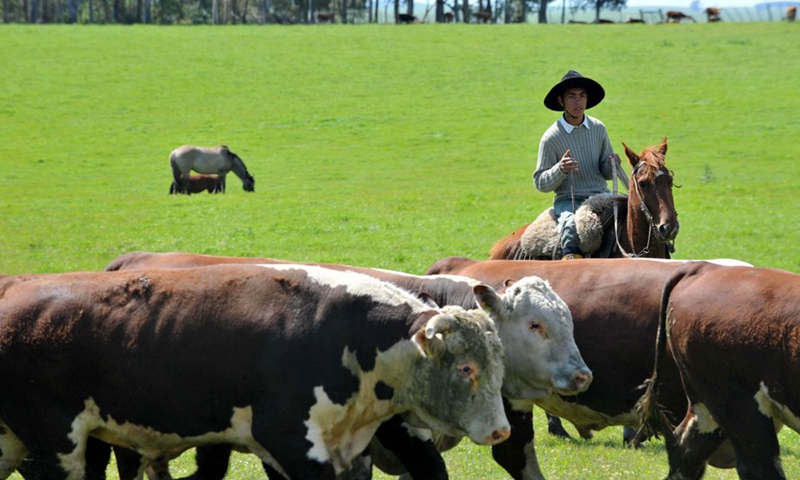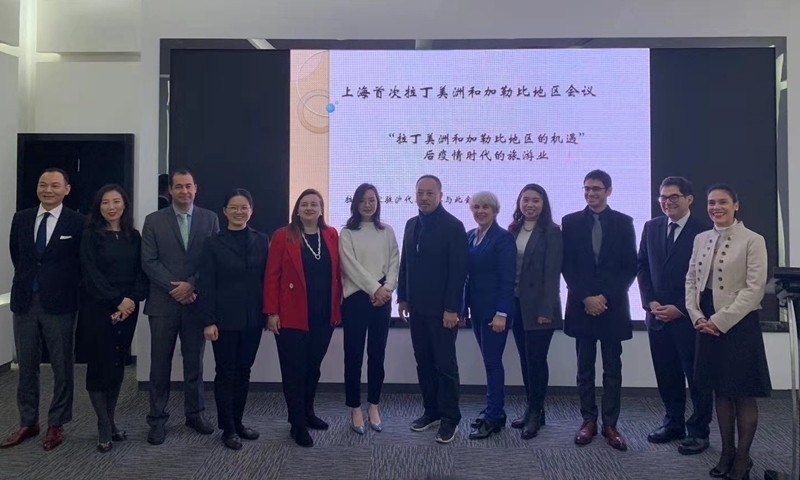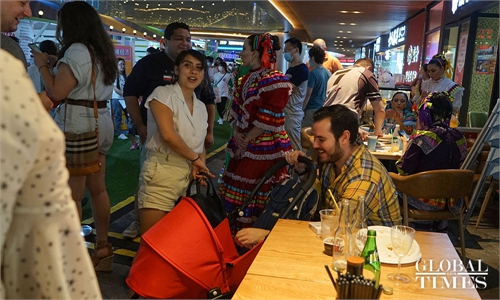SOURCE / MARKETS
Latin American countries eye Chinese market to boost tourism after COVID-19 impact

File photo:Xinhua
Some Latin American countries are now turning to the Chinese market to seek a recovery in tourism in their countries in the post COVID-19 period, after the industry suffered a massive hit globally from strict lockdowns and business suspension as well as domestic and international travel restrictions.
In 2019, Argentina received nearly 76,500 tourists from China alone, but there has been a drastic decrease in inbound travelers this year due to COVID-19, with only 9,000 tourists from overseas entering the country, said Pablo Obregon, consul general of Argentina in Shanghai, at a recent conference, which was also attended by diplomats and representatives from Colombia, Chile, Cuba, Mexico and Venezuela.
"The Chinese market could play a major role in promoting Argentina's tourism recovery," Obregon told the Global Times on Thursday. Chinese tourism in Argentina has seen growth of 100 percent since 2014, when the two countries signed an agreement to facilitate visas for tourists from both sides, he said, adding that he hopes the two countries can resume the promising trend in a post-pandemic future.
As people are intimated by the surges of coronavirus globally, international communities and countries are stepping up efforts to rebuild confidence and ensure people can travel safely with improved epidemic control measures.

Attendees at a Shanghai event focusing on tourism recovery in Latin America held on December 8 Photo: courtesy of the event organizer, Yonanetl Zavala Cadena of Modan Consulting Ltd
The World Travel & Tourism Council (WTTC), for instance, produced new global Safe Travels protocols in May for use by the travel and tourism sector as best practice guidelines. It designed the "Safe Travels" stamp to identify destinations and businesses that have adopted its health and hygiene standards.
Obregon said that Argentina has received the stamp as recognition for its work in designing and implementing health protocols aligned with international standards.
"For Chinese tourists in particular we are determined to keep developing special infrastructure and targeted policies in order to remain a top destination for them in Latin America," he said.
To prevent the coronavirus transmission risk, Cuba has fostered medical assistance and epidemiological monitoring in tourism facilities and is applying health and safety certification in qualified facilities, according to Néstor Enrique Torres Olivera, consul general of Cuba in Shanghai.
Each hotel in the country has been equipped with a team including medical staff and epidemiologists to provide 24-hour care for travellers.
Currently, all tourism facilities in Cuba have resumed operation. Olivera told the Global Times that the country has already received tourists from Canada, Russia, Germany, the UK and Mexico.
New plans for next year are also being developed. Havanatur Group, a Cuban tourism company, plans to open its first representative office in Shanghai to attract Chinese tourists with diverse options, such as visits to the renowned Varadero beach.
China will also be invited as the guest country of honor at the Cuba international tourism fair (FIT Cuba 2021) in May in 2021, the most important professional tourism event in Cuba's tourism industry, she noted.
"We aim to double the number of Chinese tourists to Cuba within two to three years," Olivera said.


